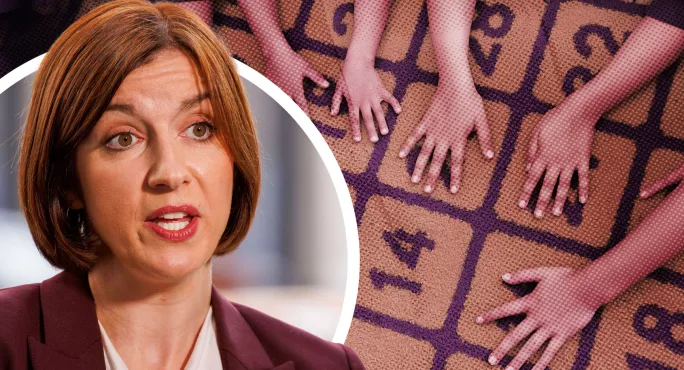Labour plans ‘real world’ maths teaching in primary

Labour will unveil plans to upskill primary school teachers to teach “real world” maths, the party said tonight.
Shadow education secretary Bridget Phillipson will set out the plans to ”encourage stronger lifelong numeracy” in her party conference speech today.
The upskilling of primary teachers who are not maths teachers would be delivered through a proposed Teacher Training Entitlement - which Labour would pay for using money raised by ending tax breaks for private schools.
The proposal also includes reforming the prime minister’s Maths to 18 working group to focus more on primary-level maths.
- Maths-to-18 plan: Qualification should be “more like a driving test”
- Bridget Phillipson: Labour wants to turn around tutoring “disaster”
- Labour: Party ready for “fight” over RAAC and private school taxes
The “real world” maths teaching would focus on developing basic numeracy skills, including financial literacy, the party said
Labour’s proposed curriculum review, announced earlier this year, would look at how maths lessons can introduce children to numeracy in the world through themes such as budgeting, recipes, sports league tables and savings accounts.
Research from UCL Institute of Education found that adults in England have worse levels of financial literacy than those in many other developed countries.
And in 2016 the Organisation for Economic Cooperation and Development estimated that 9 million adults in England had low basic numeracy or literacy skills.
Labour wants Maths Champions
Labour’s plans would also include working with nurseries to develop “Maths Champions” - these staff would support early learning and get children ready for school.
An evaluation funded by the Education Endowment Foundation (EEF) found that Maths Champions can boost maths progress by three months on average.
Exam board AQA has highlighted issues with low numeracy in England and called for a form of assessment that focuses on core real-world numeracy skills.
In her speech, Ms Phillipson is expected to say that maths “cannot be left until the last years of school” - in reference to prime minister Rishi Sunak’s plan to ensure that all young people study the subject up to the age of 18.
She will add: “It’s why I’m proud to tell you today that we’ll tackle our chronic cultural problem with maths, by making sure it’s better taught at 6, never mind 16.
“I am determined that Labour will bring maths to life for the next generation. I want the numeracy all our young people need - for life and for work, to earn and to spend, to understand and to challenge. I want that to be part of their learning right from the start.”
Party urged to ‘work with teachers’
Union leaders have welcomed Labour’s focus on real-life maths but implored the party to work with school leaders and teachers already teaching primary maths to develop the idea.
Paul Whiteman, general secretary of the NAHT school leaders’ union, said: “As leaders and teachers know, it’s vital that maths feels relevant and meaningful to children. While this is already a feature of the maths curriculum in many primary schools, we look forward to discussing how this could be developed further.
“A teacher training entitlement would be a welcome development and would support schools on their improvement journey. Teachers deserve an entitlement to ongoing, high-quality professional development, just as many other professions have. Furthermore, we know that the quality of teaching is directly linked to pupil outcomes.
“We urge Labour to work closely with the profession as it develops this policy proposal so that it properly meets the needs of school leaders and teachers. Such a policy must be done with teachers, not to them.”
Geoff Barton, general secretary of the Association of School and College Leaders, said: “We welcome this focus on numeracy, which is a vital skill for all young people to learn, but it is important to recognise that maths teaching in primary schools is already of a high standard.
“Any interventions should seek to support schools in building on the good work that is already being done, rather than looking to overhaul it and start again from scratch. Ensuring that primary schools have the funding for the resources they need, and that primary teachers have the time and capacity to develop their maths expertise, is vital to improving attainment.”
You need a Tes subscription to read this article
Subscribe now to read this article and get other subscriber-only content:
- Unlimited access to all Tes magazine content
- Exclusive subscriber-only stories
- Award-winning email newsletters
Already a subscriber? Log in
You need a subscription to read this article
Subscribe now to read this article and get other subscriber-only content, including:
- Unlimited access to all Tes magazine content
- Exclusive subscriber-only stories
- Award-winning email newsletters
topics in this article



